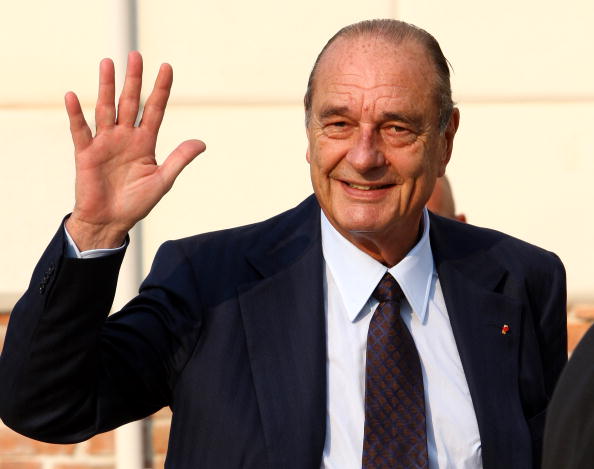What was Jacques Chirac's Net Worth?
Jacques Chirac was a French politician who had a net worth of $10 million at the time of his death. Jacques René Chirac served as the President of France from 1995 to 2007, standing as one of the most prominent and enduring political figures in modern French history. Before his presidency, Chirac established himself as a formidable presence in French politics, serving twice as Prime Minister (1974-1976 and 1986-1988) and as the Mayor of Paris for nearly two decades (1977-1995). His political career spanned over four decades, during which he transformed from a young Gaullist politician into a seasoned statesman who navigated France through the challenges of globalization, European integration, and shifting international relations. Known for his pragmatic approach to governance and remarkable political adaptability, Chirac's legacy is marked by his strong stance against the 2003 Iraq War, his acknowledgment of France's responsibility in the Holocaust, and his efforts to preserve French sovereignty within an increasingly unified Europe. Though his later years were shadowed by corruption allegations and health issues, Chirac remained a beloved figure to many French citizens who appreciated his charisma, political instincts, and commitment to French national identity.
Early Life and Education
Born on November 29, 1932, in Paris, Jacques Chirac grew up in a middle-class family. His father, Abel François Chirac, worked as an executive for an aircraft company, while his mother, Marie-Louise Valette, was a housewife. Chirac's academic journey took him through prestigious institutions, including the Lycée Carnot and the Lycée Louis-le-Grand, before he entered the Institut d'Études Politiques de Paris (Sciences Po) in 1951.
After completing his studies at Sciences Po, Chirac attended the École Nationale d'Administration (ENA), France's elite training ground for civil servants and future political leaders. This education provided him with a solid foundation in public administration and governance, preparing him for his future political career.
Rise in French Politics
Chirac's political ascent began in the 1960s under the mentorship of Georges Pompidou, who would later become President of France. In 1967, Chirac won his first elected position as a deputy in the French National Assembly representing his native Corrèze department, a rural constituency he maintained strong ties with throughout his career.
His executive experience began when he was appointed State Secretary of Economy and Finance in 1968. By 1974, at just 41 years old, Chirac became Prime Minister under President Valéry Giscard d'Estaing. However, disagreements with Giscard d'Estaing led to his resignation in 1976, after which he founded the Rally for the Republic (RPR) party, establishing his own political base.
Mayor of Paris
In 1977, Chirac was elected Mayor of Paris, a position he held until 1995. This tenure proved crucial to his political career, providing him with a visible platform and demonstrating his administrative capabilities. As mayor, he oversaw significant urban development projects while building a powerful political network that would support his national ambitions.

Vittorio Zunino Celotto/Getty Images
Presidency and International Relations
After two unsuccessful presidential bids, Chirac won the presidency in 1995 and was reelected in 2002 for a shortened five-year term. His presidency was defined by several key political stances, most notably his vocal opposition to the 2003 U.S.-led invasion of Iraq. This position elevated France's diplomatic standing in many parts of the world and reaffirmed the country's independent foreign policy tradition.
Chirac also made significant gestures toward reconciliation with difficult chapters in French history. In 1995, he became the first French president to acknowledge the nation's responsibility for the deportation of Jews during World War II. He also improved relations with Algeria and advocated for environmental protection, organizing the 2002 Earth Summit.
Domestic Policies and Challenges
On the domestic front, Chirac faced numerous challenges. His attempt at economic reforms in 1995 triggered massive strikes that forced him to retreat from his agenda. The cohabitation with Socialist Prime Minister Lionel Jospin from 1997 to 2002 further limited his domestic influence.
Despite these setbacks, Chirac successfully implemented some significant policies, including reducing France's military service requirement and later abolishing compulsory military service altogether. He also navigated the transition to the euro currency and managed France's adaptation to an increasingly globalized economy.
Later Years and Legacy
After leaving office in 2007, Chirac's reputation was tarnished by a conviction in 2011 for embezzling public funds during his time as Mayor of Paris. However, he remained popular among the French people, who often viewed him as a relatable figure who embodied certain quintessentially French qualities.
Chirac's health declined in his final years, and he gradually withdrew from public life. He died on September 26, 2019, at the age of 86, prompting an outpouring of tributes from across the political spectrum, both in France and internationally.
Jacques Chirac's legacy lies in his political longevity, his defense of French interests and culture on the world stage, and his ability to adapt to changing political circumstances while maintaining a distinctive political identity. Though his presidency delivered mixed results on domestic reforms, his international statesmanship and commitment to French sovereignty ensured his place as a significant figure in France's modern political history.










 Bengali (BD) ·
Bengali (BD) ·  English (US) ·
English (US) ·